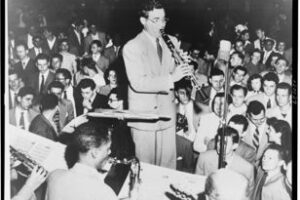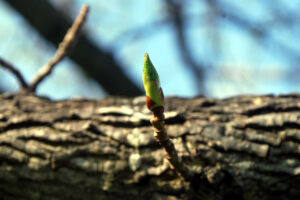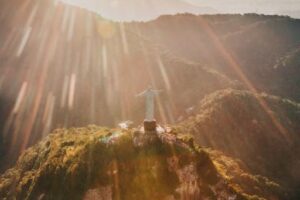(Dec 2007)

We just celebrated our Founder’s Birthday (Sensei would have turned 95), and the tenth anniversary of his parinirvana. Rev. Dr. Zengaku Soyu Matsuoka, Roshi, was born November 25, 1912 and died on November 20, 1997. Namu Kie Butsu; Namu Kie Ho; Namu Kie So!
2007 is also the 30th anniversary of the Atlanta Soto Zen Center, incorporated in 1977, and the Year of Matsuoka, the date of the founding of the order of all descendants of Sensei’s lineage. This year saw the formal recognition of Sensei’s transmission in the form of transmission ceremonies under the tutelage of Shohaku Okumura Roshi and Barbara Kohn Sensei. We published the first volume of Sensei’s written teachings, “The Kyosaku,” and completed the editing of the second volume, “Mokurai,” due out in Spring of 2008. We are gathering archival documents for a third volume, which will include a CD with his biography, sets of photos, and other items from Sensei’s long teaching career (he arrived in USA in 1939).
I have contacted and met with dharma brothers, nephews and nieces, including visits to the home temple in Chicago, Illinois, and a convocation in Tucson, Arizona, over the past couple of years. We have begun discussions of how an organization, called the Silent Thunder Order (STO, after Sensei’s term “Mokurai”) would come together. In the next year we hope to see the fruits of these efforts in the form of a constitution and bylaws for the STO; a conference in Atlanta, where the members of the senior generation of Sensei’s students will be able to meet with others of their dharma family; and clarification of the stages of training, formal and informal, available to all members of the Order.
I feel that we should be thankful for the efforts and cooperation of those who have helped these things come to pass. But it is important to understand the difference between feeling a sense of gratitude and the actualization of repaying our debts to the Buddha and ancestors, including Sensei, a question that is central to Buddhism.
Many of us think of our parents in this way: how do we repay our debt to our mother and father? Some engage in formal remembrances, as exemplified by Obon and individual memorial services; others feel that living up to the expectations of our parents is what is called for. Some resent their parents, perhaps justifiably in some cases.
Many who come to practice Zen Meditation and its tenets in daily life are overcome with a deep feeling of gratitude, expressed toward those of us who are offering this practice and training. But their gratitude is misplaced, in a sense. It is not owed to those of us who practice this way, and share our practice with others. We, after all, are doing it for ourselves at least as much as for others. In Zen, the separation of self and other is transcended. Nor should they be ungrateful, for the exposure to the buddhadharma and to genuine practice is indeed a gift, and rare. It is just that in Buddhism, this gratitude is not directional. It is not reflected toward a God or any human being, nor to any one thing in particular. The sense of gratitude should be reflected back on everything without regard to preferences, good or evil, right or wrong, without discrimination; very difficult to do.
In Soto Zen Buddhism, the meaning of our practice, our gratitude for it, the way to understand and to actualize it, was captured in poetic terms by our ancestral founder, Master Eihei Dogen, in “Eihei Koso Hotsuganmon,” “Dogen’s Vow,” which I learned to recite as part of my daily personal service during the week of my Transmission:
We vow with all beings from this life on throughout countless lives to hear the true dharma. That upon hearing it no doubt will arise in us nor will we lack in faith. That upon meeting it we shall renounce worldly affairs and maintain the buddha dharma. And that in doing so the great earth with all beings together will attain the buddha way.
Although our past evil karma has greatly accumulated, indeed being the cause and conditions of obstacles in practicing the way, may all buddhas and ancestors who have attained the buddha way be compassionate to us and free us from karmic effect, allowing us to practice the way without hindrance. May they share with us their compassion, which fills the boundless universe with the virtue of their practice and teachings.
Buddhas and ancestors of old were as we; we in the future shall be buddhas and ancestors. Revering buddhas and ancestors we are one buddha and one ancestor. Awakening bodhi mind we are one bodhi mind. Because they extend their compassion to us freely and without limit, we are able to attain buddhahood and let go of the attainment.
Therefore the Ch’an master Yung-la said, “Those who in past lives were not enlightened will now be enlightened. In this life save the body—it is the fruit of many lives. Before buddhas were enlightened they were the same as we. Enlightened people of today are exactly as those of old.”
Quietly explore the farthest reaches of these causes and conditions as this practice is the exact transmission of a verified buddha. By revealing and disclosing our lack of faith and practice before the buddha, we melt away the root of transgression by the power of our repentance.
This is the true and simple color of true practice of the true mind of faith, of the true body of faith.
So what we are to do, the only thing we can do to repay our debt to Buddha, and that no one else can do for us, is to “do thou likewise.” Do what Buddha and the ancestors did. Master Dogen reminds us that this “doing” is actually “non-doing,” in that it relies on the compassion of the buddhas and ancestors. This does not mean that it is not real, however.
At a time of thanks-giving in our culture, it is of crucial importance that we rededicate our efforts to the realization of this inconceivable budhhadharma. We cannot change the past, but we can renew our vows in the present. And we can renew our commitment to practice, practice, practice. This way, we express the true gratitude that has nothing to do with the circumstances of the moment, and find the happiness that is in ordinariness. This does not mean that we ignore the suffering of the world, just the opposite. Repentance is not a passive act, but an aggressive embrace of our self and others in the midst of Buddha’s dukkha. We melt away the root of transgression in the intense fire of our devotion. This devotion is to practice of the buddha way, from which we are inseparable.
…it is important to understand the difference between feeling a sense of gratitude and the actualization of repaying our debts to the Buddha and ancestors, including Sensei, a question that is central to Buddhism.
Zenkai Taiun Elliston, Roshi









